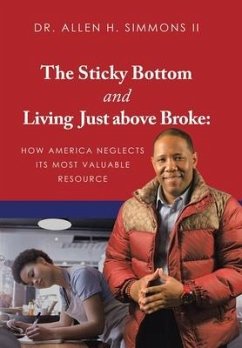
Willem Vanderburg
Broschiertes Buch
Living in the Labyrinth of Technology
Versandkostenfrei!
Versandfertig in über 4 Wochen
Weitere Ausgaben:

PAYBACK Punkte
29 °P sammeln!





Living in the Labyrinth of Technology argues that the twenty-first century will be dominated by a pattern of re-creating human life in the image of technology unless society intervenes on human (as opposed to technical) terms.
Willem H. Vanderburg has taught preventive engineering, sociology, and environmental studies at the Centre for Technology and Social Development at the University of Toronto.
Produktdetails
- Verlag: University of Toronto Press
- Seitenzahl: 550
- Erscheinungstermin: 17. Juni 2005
- Englisch
- Abmessung: 230mm x 154mm x 40mm
- Gewicht: 776g
- ISBN-13: 9780802048790
- ISBN-10: 080204879X
- Artikelnr.: 13759041
Herstellerkennzeichnung
Libri GmbH
Europaallee 1
36244 Bad Hersfeld
gpsr@libri.de
"'Willem H. Vanderburg's work is highly regarded by many, but Living in the Labyrinth of Technology is surely his most important book, Vanderburg compellingly explains how daily life in modern society has evolved to become routinely blind to the forces of authoritarianism and conformity. We learn, painfully, not only how the everyday of modern life fails to question the meaning or ethics of its constructed reality, but why. The book's disturbing explanation cannot comfort readers, but it does offer the chance to reflect on our cultural drift and, just possibly, to realize the need to resurrect normative purposes for our being. A major work.' John Byrne, Center for Energy and Environmental Policy, University of Delaware; 'An important contribution to the ongoing debate about where current events are leading us, Living in the Labyrinth of Technology is dense with profound, disturbing, and often surprising insights and connections. Vanderburg's writing is excellent - clear and refreshingly conversational - and he performs an important role in pulling together Jacques Ellul's ideas about technology and technique and updating Ellul's conclusions to the present at a time when the downside of technique seems to be accelerating.' Stuart Dreyfus, College of Engineering, University of California, Berkeley"
Für dieses Produkt wurde noch keine Bewertung abgegeben. Wir würden uns sehr freuen, wenn du die erste Bewertung schreibst!
Eine Bewertung schreiben
Eine Bewertung schreiben
Andere Kunden interessierten sich für











